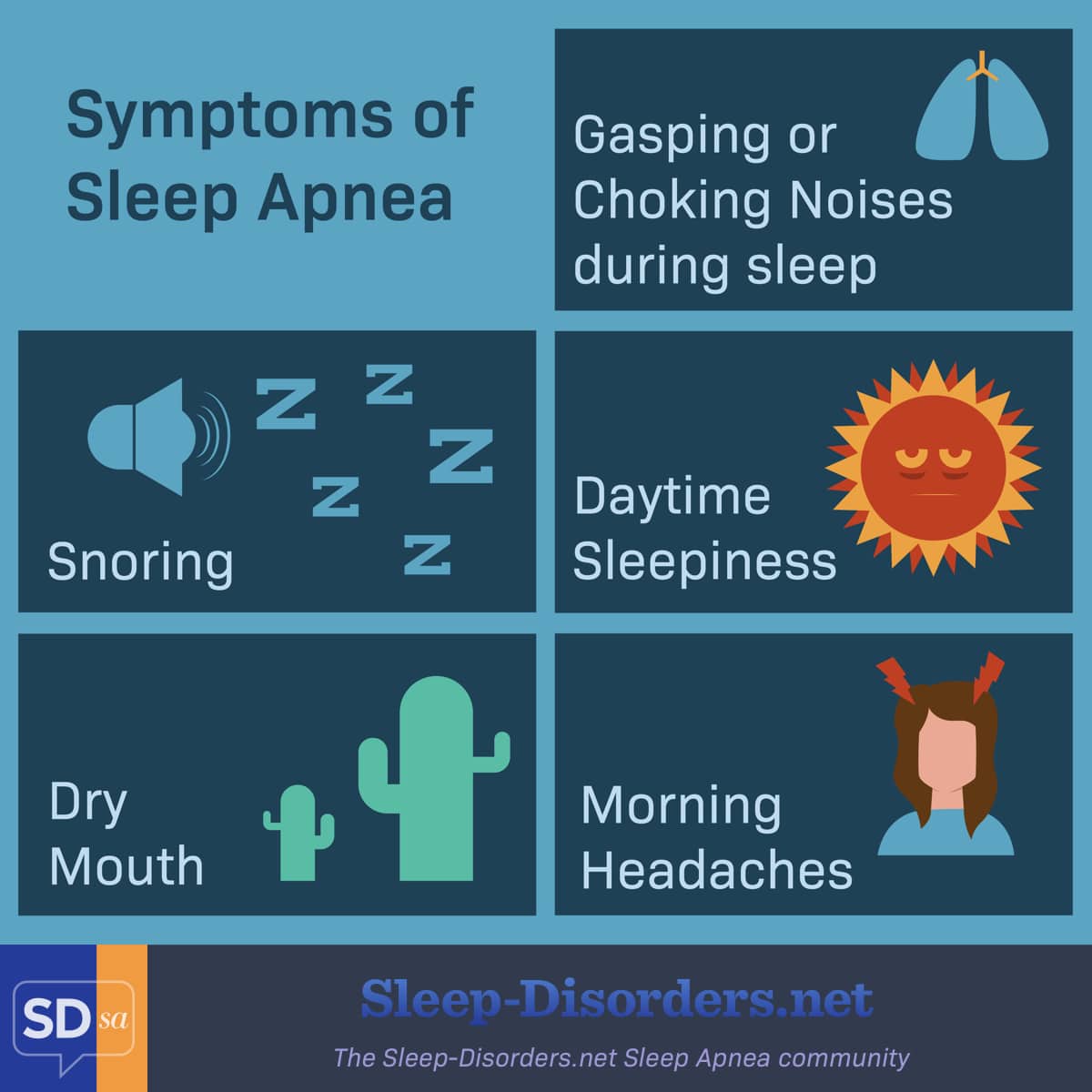Symptoms of Sleep Apnea
Reviewed by: HU Medical Review Board | Last reviewed: June 2020 | Last updated: March 2023
Sleep apnea is a common sleep disorder. With sleep apnea, breathing stops for short periods of 10 seconds or more during sleep. Left untreated, sleep apnea may lead to high blood pressure, heart disease, diabetes, kidney disease, depression, and more.1
It is estimates that 30 million people in the United States have sleep apnea. Sleep apnea can affect anyone, including women and children.2,3
Symptoms of sleep apnea
People with sleep apnea often snore loudly and make gasping or choking noises in their sleep. In fact, snoring most nights is the number one sign of sleep apnea. Between 80 and 90 percent of people with sleep apnea snore. Sleep apnea can be mild, moderate, or severe.2,4,5
Many people are unaware they have a problem until a sleep partner complains about the snoring. Others hear for the first time that they choke, gasp, or stop breathing during sleep from a bed partner.
Without knowing it, many people with sleep apnea wake up briefly many times in the night. It is the body’s response to not breathing. This is what causes one of the other main symptoms of sleep apnea: Waking up feeling tired even after a full 7 to 9 hours of sleep.
Other symptoms of sleep apnea include:5
- Daytime sleepiness
- Fatigue, low energy
- Morning headaches most days
- Waking up with a dry mouth
- Need to pee in the night
- Insomnia
- Difficulty concentrating
- Depression
- Irritability
- Sexual dysfunction
- Learning and memory problems
- Chest pains or heart flutter (atrial fibrillation)
Figure 1. Common symptoms of sleep apnea
People with sleep apnea often report falling asleep while sitting and reading, watching TV, or even driving. This can affect work and school performance. Others drink large amounts of caffeine to stay awake.5
Other health conditions and sleep apnea
Sleep apnea is more common with some health conditions. In some cases, the condition is caused by sleep apnea. In others, the illness itself may cause sleep apnea. That is why your doctor may ask you about snoring if you also have:5
- High blood pressure
- Heart attack
- Heart failure
- Heart arrhythmia
- Stroke
- Pre-diabetes or diabetes
- Post-traumatic stress disorder
- End-stage kidney disease
- Lung disease such as COPD
How is sleep apnea diagnosed?
Sleep apnea is diagnosed with a combination of a physical exam, medical history, and a home sleep apnea test or laboratory sleep study. A home study may be an option for people who do not have a complicated case or who may have moderate to severe sleep apnea. A full lab test may be needed for people in high-risk jobs or if the doctor believes you may have more than 1 sleep disorder.5
Treatments for sleep apnea
Sleep apnea can be treated with a combination of lifestyle changes, devices to help with breathing, and sometimes surgery. While many drugs have been tested, none have been found to improve sleep apnea better than the available devices or weight loss.6
